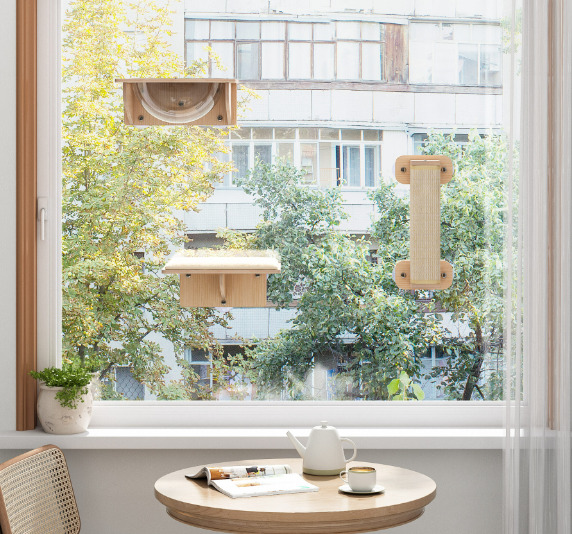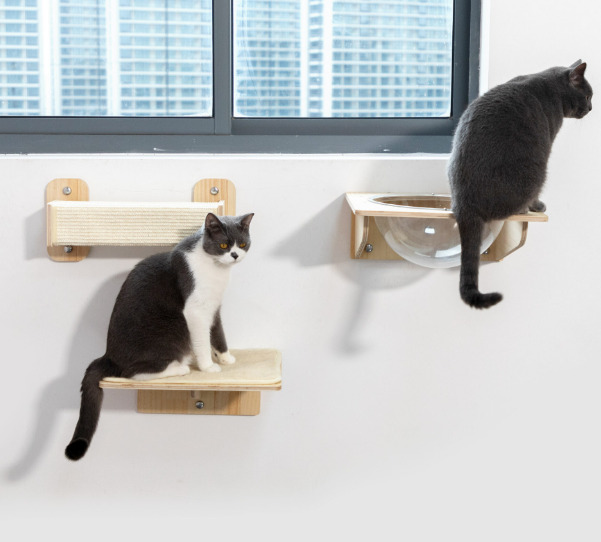Cats, often associated with independence and aloofness, might not be the first species that comes to mind when thinking about involved parenting. However, the dynamics of feline families can be surprising, especially when it comes to the question: Do male cats raise kittens with cat bed? Let’s explore this intriguing aspect of cat behavior and challenge common stereotypes.
Active Paternal Care with Cat Bed
Male Cats as Protectors
Contrary to the perception of male cats as distant figures, they often take on the role of protectors within their colonies. This protective instinct doesn’t diminish when it comes to kittens on cat bed. Male cats may actively patrol and defend the nesting area, ensuring the safety of the kittens and the mother.
Male Cats and the Role of Paternal Care
While maternal care is typically more pronounced, especially during the early stages of kittenhood, studies have shown that male cats can indeed exhibit paternal care behaviors. These behaviors on cat bed may include grooming, playing, and even sharing the duties of providing warmth and protection. The level of paternal care can vary among individual cats and is influenced by factors such as the relationship between the male and female, the presence of other colony members, and the overall environment.
Bonding through Play and Interaction
Bonding through Play
Play is a crucial aspect of feline socialization, and male cats often engage in play with kittens. This interaction contributes to the kittens’ physical and social development. Through play, male cats establish bonds with the kittens, fostering a sense of trust and companionship. This form of bonding on cat bed goes beyond mere tolerance and reflects a genuine interest in the well-being of the younger members of the feline family.
Shared Responsibilities in the Colony
In feline colonies, especially those formed in outdoor or community settings, males may share responsibilities with females in raising and protecting the kittens with cat bed. While females typically have the primary caregiving role, males contribute by providing food, keeping predators at bay, and participating in social interactions that contribute to the kittens’ overall socialization.

Variable Involvement and Neutering Impact
The Impact of Neutering on Male Cat Behavior
Neutering, the process of removing a male cat’s reproductive capabilities, can influence their behavior, including their interactions with kittens. Neutered male cats may exhibit more nurturing behaviors and are often less territorial, contributing to a more harmonious family dynamic. It’s important to note that individual personalities play a significant role, and not all neutered males will display the same level of involvement with kittens on cat bed.
Breaking Stereotypes
The prevailing stereotype of male cats as detached and uninvolved in kitten rearing is not universally accurate. While it’s true that female cats generally take on a more prominent role in caregiving, male cats can and do participate actively in raising kittens with cat window perch. These findings challenge traditional assumptions about feline behavior and highlight the diverse ways in which cats navigate their roles within a family unit.
Neutering and Population Control
Neutering male cats not only influences their caregiving behaviors on cat window perch but also plays a crucial role in population control. Neutered males are less likely to engage in territorial disputes and mating-related aggression. This contributes to a more harmonious living environment, reducing stress for both male and female cats and creating a conducive atmosphere for the nurturing of kittens.
Contributions to Socialization on Cat Bed
Positive Impact on Kitten Socialization
The involvement of male cats in raising kittens on cat window perch has a positive impact on the socialization of the young felines. Exposure to different caregiving styles, both maternal and paternal, contributes to well-adjusted and socially adept kittens. These kittens tend to display more confidence, resilience, and effective communication skills, thanks to the diverse interactions within the feline family.
Emotional Bonds and Companionship
Male cats that actively participate in raising kittens with cat window perch often form strong emotional bonds with them. These bonds can extend into adulthood, creating lasting companionships within the feline family. The emotional support provided by male cats can contribute to the overall well-being of the kittens and enhance their ability to navigate social relationships with other cats and humans.

Observation of Natural Behaviors on Cat Bed
Observing Natural Feline Behaviors
Acknowledging the active role of male cats in raising kittens with cat window perch allows us to appreciate and observe natural feline behaviors. Whether it’s a male cat engaging in grooming sessions, playtime, or sharing a cozy spot with kittens, these behaviors reflect the intricate and nuanced ways in which cats form connections within their social groups. By observing and understanding these behaviors, we gain insight into the richness of feline relationships.
Adoption and Stepparenting
In some instances, male cats display an extraordinary behavior known as adoption or stepparenting. This occurs when a male cat, whether related to the kittens or not, takes an active role in caring for them with cat window perch . The reasons behind this behavior can vary and may include a strong bond with the mother cat, a desire to protect the colony’s younger members, or even a response to environmental factors. This unique form of caregiving showcases the adaptability and complexity of feline social structures.
In the intricate world of feline social structures, male cats emerge as more than distant figures in the background. They actively contribute to the upbringing of kittens, demonstrating protective instincts, engaging in play, and sharing responsibilities with females. While individual differences exist, the overall picture painted by the involvement of male cats in raising kittens with cat bed is one of surprising warmth and interconnectedness within the feline family. Understanding and appreciating these dynamics can deepen our bond with our feline companions and challenge preconceived notions about the roles of male cats in the upbringing of the next generation.